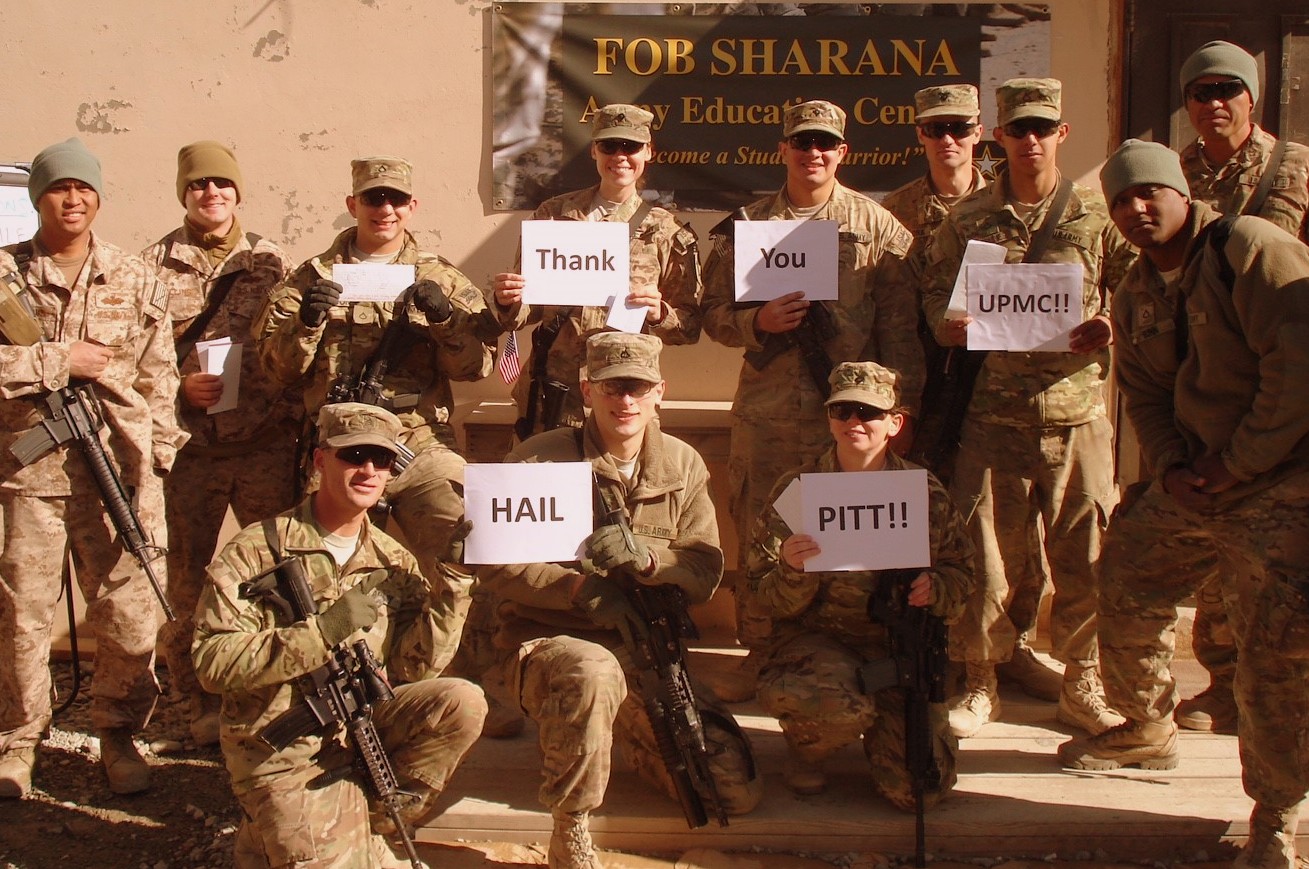Dr. Anne Germain Addresses Pervasive Issue of Sleep Disturbances in Military Populations
Post-traumatic stress disorder (PTSD) is commonly associated with combat service, but not everyone realizes that sleep disturbances are just as common in soldiers. It is estimated that 54% of those who have served in combat since 9/11 have insomnia, according to Anne Germain, PhD, who is an international leader in the field of sleep disturbances in trauma-related disorders, particularly PTSD. Dr. Germain is Associate Professor of Psychiatry and Director, Sleep and Behavioral Neuroscience Center. Her research is grounded on the premise that sleep disturbances can not only aggravate but actually contribute to PTSD in veterans who have experienced combat and that soldiers who suffer from insomnia while deployed have a greater chance of developing depression, suffering from PTSD, and even committing suicide. She studies both the neurobiology of sleep disturbances and their treatment using behavioral and pharmacologic interventions and looks at the pathophysiology, neurobiology, and treatments for insomnia and nightmares comorbid with stress-related disorders, emphasizing PTSD in military populations.
Rather than just being a symptom of PTSD, sleep problems can become an independent disorder uniquely associated with significant distress and impairment. The literature suggests that disturbed REM or non-REM sleep can contribute to maladaptive stress and trauma responses and may constitute a modifiable risk factor for poor psychiatric outcomes. “Clinicians need to consider that the chronic sleep disruption associated with nightmares may affect the efficacy of first-line PTSD treatments, and targeted sleep treatments may accelerate recovery from PTSD,” said Dr. Germain. ”The ultimate goal is to get these people back on their feet.”
Dr. Germain is Director of the Military Sleep Tactics and Resilience Research Team (M-STARRT), which is investigating the brain mechanisms that underlie sleep disturbances and the effects of sleep treatments on sleep quality and daytime functioning using brain imaging techniques. Participants, recruited from the Pittsburgh area, spend two days in a sleep lab. Working with the Department of Defense Biotechnology High-Performance Computing Software Applications Institute in Fort Detrick, MD, the team uses high-resolution EEG to record brain activity in combat-exposed military veterans with and without sleep disturbances. In collaboration with Assistant Professor of Psychiatry, Fabio Ferrarelli, MD, PhD, the team has found that deep, or restorative, sleep is indeed associated with better performance over time in people without sleep disturbances. They plan to study whether this also holds true for those who have PTSD and sleep disturbances.
Dr. Germain also collaborates with a researcher in the School of Rehabilitation and Health Sciences to develop, test, and implement a mobile health platform for delivery of mobile health intervention. The team hopes to facilitate access to evidence-based treatment by using this readily available technology that will allow for monitoring of sleep disturbances and delivery of personalized, just-in-time behavioral intervention. Users log information on their sleep and wake habits into an app on their phone, and algorithms “think” like a clinician to recommend a menu of evidence-based treatments to clinicians, who forward the information through a patient portal. “We need to address a huge gap between the need for behavioral sleep medicine and the general population’s awareness of the importance of sleep in brain health, and the dearth of clinicians able to deliver this type of sleep health care,” said Dr. Germain. “This will facilitate access and delivery of care to many people experiencing chronic sleep problems and looking for treatment. Not many clinicians offer these services, and this platform would provide a way to accelerate access to care and redefine the workload of clinicians who have long waiting lists of patients seeking treatment.” Preliminary data strongly support the effectiveness of digital delivery of behavioral sleep interventions, and the team has submitted a proposal to conduct a clinical trial.
Dr. Germain recently co-edited the book Sleep and Combat-Related PTSD (Springer). The book provides a broad perspective of the sleep/military medicine field and offers a unique, complete resource addressing basic concepts and clinical applications in settings where combat-related PTSD is commonplace. This is the first book to specifically address sleep in the context of PTSD and also address the related experience of family members and children. Dr. Germain’s chapter focuses on the assessment of sleep disturbances for trauma-related psychological disorders. Her work has been featured in the New York Times, TIME® Magazine, and other notable media outlets.

